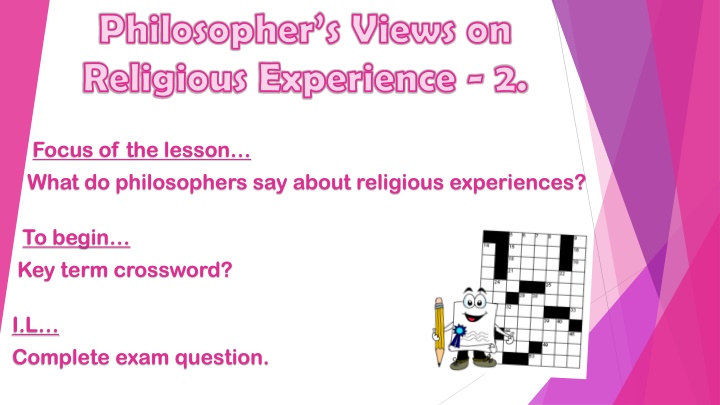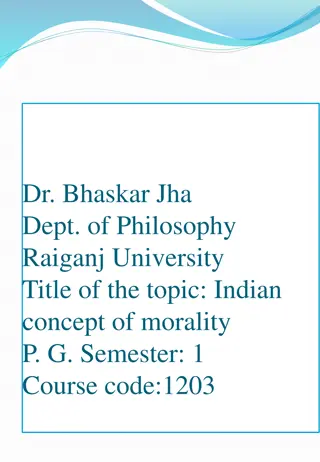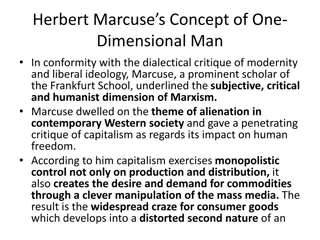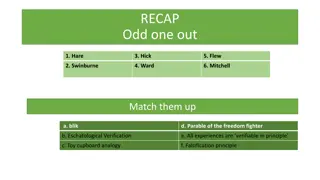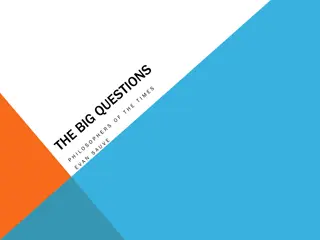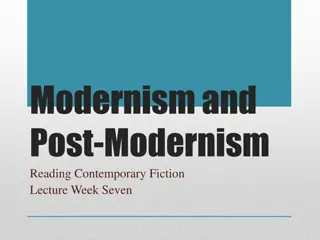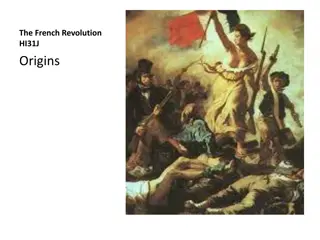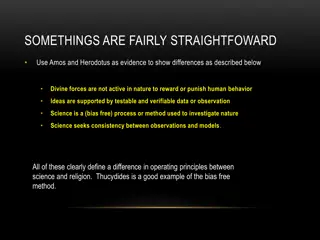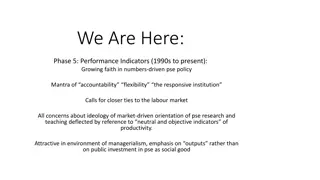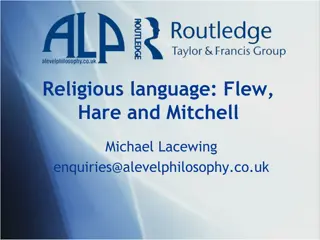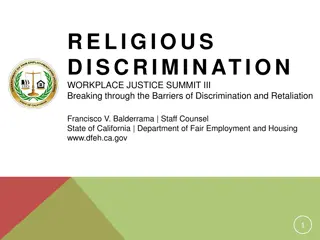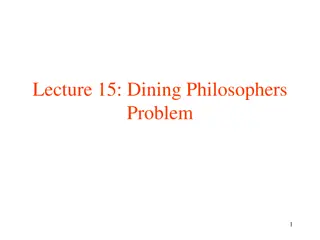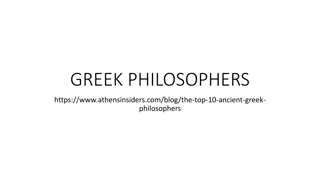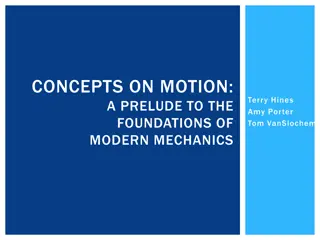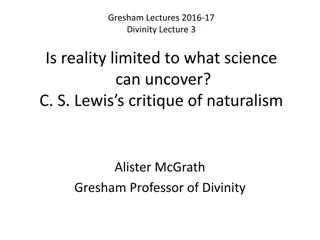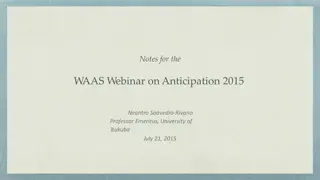Philosophers' Views on Religious Experience: Insights and Critiques
This lesson delves into the perspectives of various philosophers such as Rudolph Otto, Richard Swinburne, John Hick, and Michael Persinger on religious experiences. It explores concepts like the numinous, religious knowledge, God's existence, and criticisms on the validity of religious experiences. The content also includes a critical analysis of Dawkins' perspective and how it relates to beliefs about God's existence.
Download Presentation

Please find below an Image/Link to download the presentation.
The content on the website is provided AS IS for your information and personal use only. It may not be sold, licensed, or shared on other websites without obtaining consent from the author.If you encounter any issues during the download, it is possible that the publisher has removed the file from their server.
You are allowed to download the files provided on this website for personal or commercial use, subject to the condition that they are used lawfully. All files are the property of their respective owners.
The content on the website is provided AS IS for your information and personal use only. It may not be sold, licensed, or shared on other websites without obtaining consent from the author.
E N D
Presentation Transcript
Philosophers Views on Religious Experience - 2. Focus of the lesson What do philosophers say about religious experiences? To begin Key term crossword? I.L Complete exam question.
Philosophers Views on Religious Experience - 2. Rudolph Otto... Rudolph Otto... a) Why did Otto coin the expression of the numinous ? b) Explain Otto s idea of The Holy Other . c) Explain the tremendum and mysterium components of the numinous experience. d) Look up Exodus 3:6. Explain how Moses experience illustrates Otto s theories. e) What does Otto s term divination mean? f) Explain how a religious experience can be mystical and numinous, and how this can mean religious experiences can apply to any religion. i) Use Otto s arguments to suggest that God exists.
Philosophers Views on Religious Experience - 2. Richard Swinburne. Richard Swinburne. a) Explain how Swinburne categorises religious experiences. b) Outline Swinburne s two principles in support of religious experiences. c) Explain how Swinburne s arguments could lead to proof that God exists. d) Suggest criticisms for Swinburne s arguments.
Philosophers Views on Religious Experience - 2. John Hick. John Hick. a)Explain how Hick suggests religious knowledge is gained. b)Use a quotation from Hick s publication, Faith and Knowledge , to make an argument for God s existence. c)Summarise the basis of Hick s argument for religious experience.
Philosophers Views on Religious Experience - 2. Michael Michael Persinger Persinger. . a) Explain the purpose of the God Helmet . b) What did Persinger claim were the results of the God Helmet experiments? c) Explain how Persinger suggests religious experiences could be a result of seismic faults. d) Suggest some criticisms of Persinger s theories.
Philosophers Views on Religious Experience - 2. Task sixteen. Task sixteen. a) Explain why Dawkins says religious experiences are not a real phenomenon and how this leads to a belief that God does not exist. b) What are some of the criticisms of Dawkins arguments?
Philosophers Views on Religious Experience - 2. Exam Question Explore key ideas about the nature of religious experience. 8 marks AO1 AO1 is for candidates to demonstrate knowledge, understanding and specialist language and terminology when responding to the question. Candidates may refer to the following. Some transient experiences may have life-long effects and be regarded as religious. Some of these experiences may be public and appear to be unusual experiences believed to be created by God. Some may be private, which may be expressed in normal language, but others may be more difficult to express in words. An example of ineffable experiences may be seen in mysticism. Some religious experiences may be what Otto referred to as numinous (the wholly other). (8)
